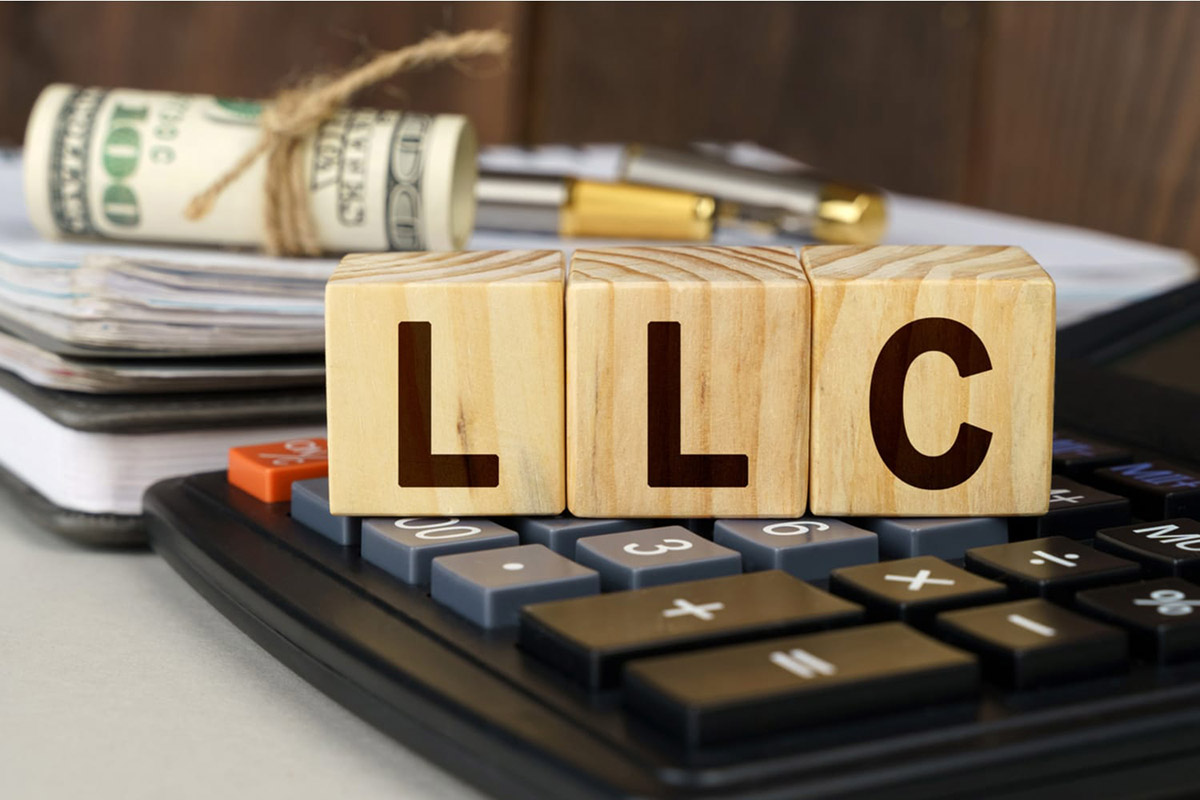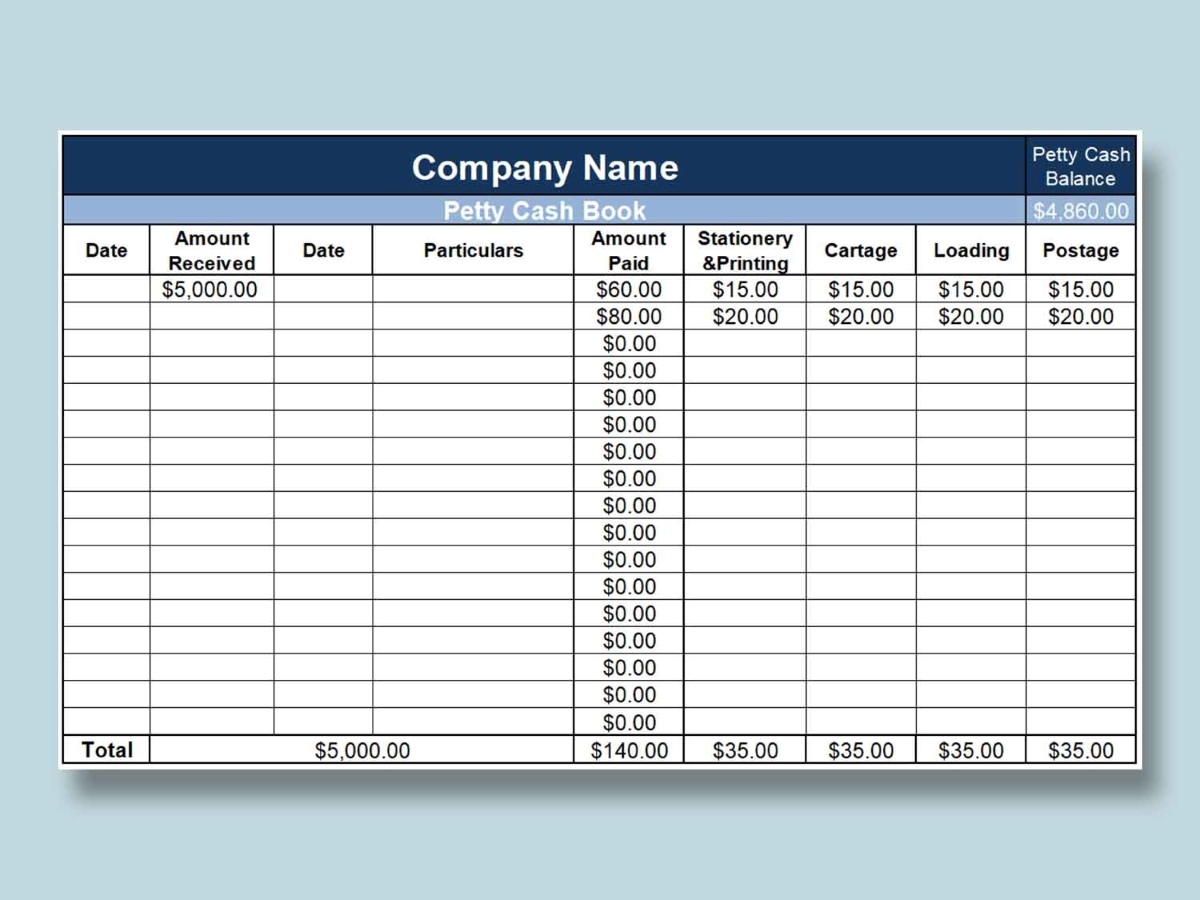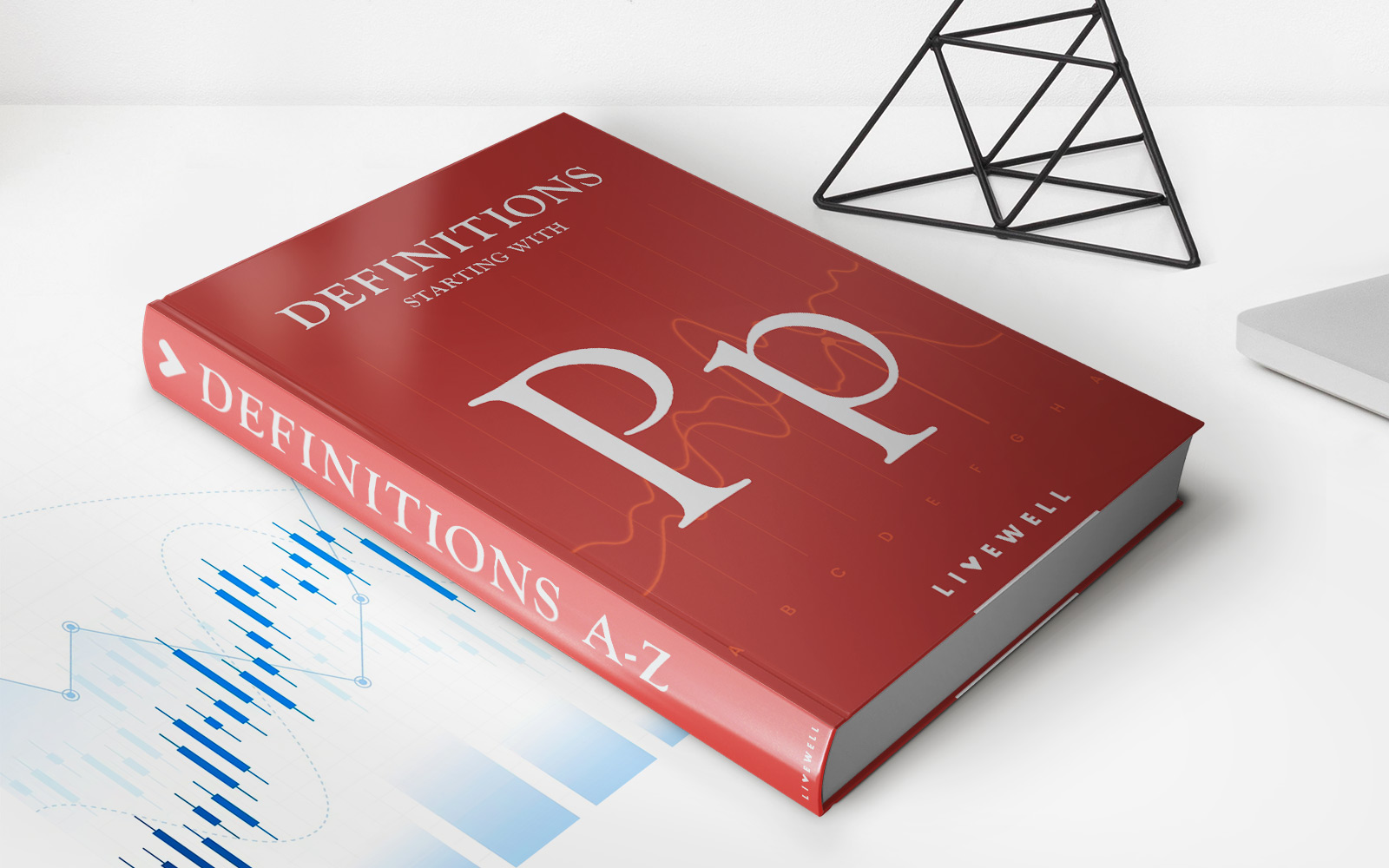

Finance
How To Maximize Tax Deductions For LLC
Published: January 20, 2024
Learn how to maximize tax deductions for your LLC and save money on your finance expenses. Find expert tips and strategies to reduce your tax liability.
(Many of the links in this article redirect to a specific reviewed product. Your purchase of these products through affiliate links helps to generate commission for LiveWell, at no extra cost. Learn more)
Table of Contents
Introduction
Welcome to the world of LLCs and tax deductions! As a business owner, it’s essential to maximize every opportunity to save on taxes and keep more money in your pocket. One way to do this is by taking advantage of the various tax deductions available to limited liability companies (LLCs). Understanding these deductions and knowing how to optimize them can make a significant difference in your bottom line.
An LLC, or Limited Liability Company, is a popular business structure known for its flexibility and liability protection. Unlike a corporation, an LLC’s profits and losses pass through to its owners, known as members, who report them on their individual tax returns. This pass-through taxation offers potential tax advantages that can be leveraged to minimize your tax liability.
Maximizing your LLC tax deductions is crucial for reducing your taxable income and ultimately lowering your tax bill. By identifying and utilizing eligible deductions, you can keep more of your hard-earned money to reinvest in your business or personal aspirations.
In this comprehensive guide, we will explore various tax deductions that LLCs can take advantage of. From operating expenses to startup costs, we will delve into different categories of deductions, providing valuable insights and strategies to optimize your deductions. By the end of this journey, you will be equipped with the knowledge to make informed decisions and maximize your tax deductions for your LLC.
However, it’s important to note that tax laws and regulations are complex and subject to change. It is advisable to consult with a qualified tax professional or CPA to ensure compliance and maximize your LLC tax deductions based on your specific financial situation and business activities.
Now, let’s dive into the world of LLC tax deductions and explore the many ways you can save money and grow your business!
Understanding LLC Tax Deductions
Before we delve into the specific deductions available to LLCs, let’s first understand the concept of tax deductions. In simple terms, tax deductions are expenses that can be subtracted from your taxable income, reducing the amount of income you owe taxes on. By claiming eligible deductions, you can effectively lower your overall tax liability.
As an LLC owner, you are entitled to deduct both ordinary and necessary business expenses. Ordinary expenses are those that are common and accepted in your industry, while necessary expenses are those that are helpful and appropriate for your business’s operation.
It’s important to keep detailed records of all your business expenses so that you can accurately claim deductions when filing your tax return. Proper documentation and record-keeping are essential to substantiate your deductions and withstand any potential audits by tax authorities.
Now, let’s explore some of the key tax deductions available to LLCs.
- Operating Expenses: These are the day-to-day expenses incurred in the regular course of conducting your LLC’s business activities. This includes expenses like rent, utilities, office supplies, professional fees, advertising and marketing costs, and other similar expenses. By deducting these expenses, you can effectively reduce your taxable income.
- Business Equipment: LLCs often require various equipment to operate efficiently. From computers and software to machinery and tools, the costs associated with purchasing or leasing these items can be deductible. Keep in mind that there are different rules for deducting the full cost of equipment in the year of purchase versus depreciating the cost over several years.
- Employee Wages and Benefits: If you have employees, you can deduct their wages, salaries, and other employee benefits as business expenses. This includes employer contributions to health insurance plans, retirement plans, and other fringe benefits.
- Insurance Premiums: LLCs commonly purchase various forms of insurance to protect their business assets and operations. Premiums paid for general liability insurance, professional liability insurance, property insurance, and other forms of coverage can typically be deducted as business expenses.
- Interest and Financing Costs: If your LLC has taken out loans or has credit card debt for business purposes, the interest payments and other financing costs associated with these debts can be deductible.
Remember, these are just a few examples of the deductions available to LLCs. It’s important to consult with a tax professional or CPA to understand the full range of deductions that apply to your specific business.
In the next section, we will explore ways to maximize your LLC tax deductions and optimize your tax savings.
Maximizing Business Expenses
When it comes to maximizing your LLC tax deductions, one of the key strategies is to carefully manage and optimize your business expenses. By identifying legitimate business expenses and taking advantage of available deductions, you can effectively reduce your taxable income and lower your overall tax liability. Here are some tips to help you maximize your business expenses:
- Keep meticulous records: Good record-keeping is essential when it comes to maximizing your deductions. Make sure to keep track of all your business expenses, including receipts, invoices, and other relevant documentation. This will not only help you identify deductible expenses but also serve as evidence in case of an audit.
- Separate personal and business expenses: It’s vital to keep your personal and business expenses separate. Maintain separate bank accounts and credit cards for your LLC to ensure clear delineation. This will make it easier to track and claim business expenses, avoiding any confusion or commingling of funds.
- Be aware of capital expenditures: Certain business expenses, such as equipment purchases or property improvements, may be considered as capital expenditures and may require depreciation over time. Make sure to understand the rules around capital expenses and how they impact your deductions.
- Utilize software or accounting tools: Consider using accounting software or online tools to track your expenses and generate accurate financial reports. These tools can streamline your record-keeping process, help you organize your expenses, and provide insights into your overall financial health.
- Claim home office deductions: If you operate your LLC from a home office, you may be eligible for home office deductions. This allows you to deduct a portion of your home expenses, such as rent, utilities, and internet costs, that are directly related to your business operation. Keep in mind that the home office must meet specific requirements set by the IRS.
- Consider outsourcing certain tasks: Outsourcing certain business tasks, such as bookkeeping, payroll processing, or IT services, can be tax-deductible expenses. By utilizing external service providers, you can not only save time and effort but also claim deductions for these outsourced services.
- Take advantage of education and training: Investing in your own professional development and that of your employees can be a deductible expense. Expenses related to attending conferences, workshops, seminars, or online courses for the purpose of enhancing your business skills and knowledge may qualify for deductions.
Remember, it’s crucial to consult with a tax professional or CPA who can provide guidance specific to your business and ensure that you are correctly claiming all eligible deductions.
Next, we will explore specific deductions available to LLCs, such as home office deductions, vehicle deductions, and meal and entertainment deductions.
Home Office Deduction
If you operate your LLC from a home office, you may be eligible for the home office deduction. This deduction allows you to deduct certain expenses associated with your home office, such as rent, utilities, and internet costs, that are directly related to your business operations.
However, to qualify for the home office deduction, you must meet specific criteria set by the IRS. Here are the key points to consider:
- Exclusive and regular use: Your home office must be used exclusively for your business and on a regular basis. This means that the space should be used solely for business purposes and not for personal activities.
- Principal place of business: Your home office should be your primary place of business where you conduct substantial administrative or management activities. Alternatively, it can be a place where you meet and deal with clients or customers regularly.
- Size limitations: There are size limitations for the home office deduction. The space you claim as a home office must be used exclusively for your business and cannot be used for any other purpose. It should be a separate room or a clearly defined area within a room, such as a dedicated workspace.
Once you meet these requirements, you can calculate and claim the home office deduction. There are two methods to calculate the deduction:
- Simplified method: With the simplified method, you can deduct $5 per square foot of your home office space, up to a maximum of 300 square feet. This method offers a straightforward approach to calculate the deduction without needing to maintain detailed records of actual expenses.
- Regular method: The regular method involves calculating the actual expenses associated with your home office, such as mortgage interest, rent, utilities, insurance, and repairs. To determine the deductible portion, you need to allocate these expenses based on the percentage of your home office’s square footage compared to the total square footage of your home.
It’s important to note that the home office deduction can be a red flag for tax authorities, as it has been subject to abuse in the past. Therefore, it’s crucial to accurately and honestly claim this deduction, keeping thorough documentation to support your eligibility.
Consulting with a tax professional or CPA who is experienced with home office deductions can help ensure that you comply with the IRS guidelines and maximize your eligible deductions without raising any red flags.
In the next section, we will explore another important deduction for LLCs – vehicle deductions.
Vehicle Deductions
If your LLC uses a vehicle for business purposes, you may be eligible for vehicle deductions. These deductions allow you to deduct expenses related to the use of your vehicle for your LLC’s business activities. There are two methods for calculating vehicle deductions:
- Standard Mileage Rate: The standard mileage rate is a simplified method of calculating vehicle expenses. For tax year 2021, the standard mileage rate is 56 cents per mile for business use. To claim this deduction, you need to keep a record of your business mileage, including the date, purpose of the trip, and number of miles driven.
- Actual Expenses: Alternatively, you can deduct the actual expenses associated with your vehicle, such as gas, oil changes, repairs, insurance, and depreciation. To claim this deduction, you need to track all the actual expenses you incur for your vehicle and calculate the proportion of those expenses that are attributable to business use.
When deciding which method to use, it’s essential to consider your specific circumstances and calculate which method will result in a higher deduction. Maintaining accurate records of your mileage and vehicle expenses is crucial for claiming vehicle deductions and substantiating your claim.
It’s important to note that personal use of the vehicle cannot be claimed as a business expense. You should only claim deductions for the portion of vehicle expenses attributable to business use. It’s advisable to keep a mileage log or use a mileage tracking app to accurately record your business mileage.
Another consideration is whether to lease or purchase a vehicle for your LLC. Both options have different tax implications. If you lease a vehicle, you can generally deduct the lease payments as a business expense. If you purchase a vehicle, you may be able to claim depreciation deductions over the useful life of the vehicle.
Consulting with a tax professional or CPA who is knowledgeable about vehicle deductions can help you navigate this process and ensure that you accurately claim the deductions you are entitled to while staying in compliance with IRS guidelines.
In the next section, we will explore meal and entertainment deductions, an often overlooked deduction for LLCs.
Meal and Entertainment Deductions
As an LLC owner, you may be eligible to claim deductions for meals and entertainment expenses incurred in the course of your business activities. However, it’s important to understand that the rules surrounding meal and entertainment deductions have undergone significant changes in recent years.
Prior to 2018, businesses were able to deduct 50% of business-related meals and entertainment expenses. However, under the Tax Cuts and Jobs Act, enacted in 2017, entertainment expenses are no longer deductible, and the deduction for business meals has been modified.
Currently, you can generally deduct 50% of the cost of meals that are directly related to your business activities. These meals must be ordinary and necessary for your business and incurred while entertaining clients, customers, or employees.
Here are some key points to consider regarding meal and entertainment deductions:
- Substantiation requirements: You must maintain detailed records of the meal expenses, including the amount, date, place, business purpose, and the individuals present. This documentation is crucial to substantiate your claim in case of an audit.
- Business purpose: The meal must have a clear business purpose and be directly related to your LLC’s activities. This can include meals with clients or customers to discuss business matters or meals with employees during business meetings.
- Non-entertainment expenses: It’s important to note that entertainment expenses, such as tickets to sporting events or concerts, are no longer deductible. However, if the meal is separate from the entertainment activity, the meal portion may still be deductible.
- Employee meals: While the deduction for employee meals is still allowed, it’s essential to ensure that the meals are primarily for the convenience of the employer and provided on the business premises. Additionally, the value of the meals provided to employees may be subject to certain limitations.
It’s crucial to maintain accurate records, including receipts and documentation, to support your meal and entertainment deductions. This will help ensure compliance with IRS requirements and substantiate your claim if necessary.
As always, it’s advisable to consult with a tax professional or CPA who can provide guidance specific to your business and help you understand the applicable rules and limitations surrounding meal and entertainment deductions.
In the next section, we will explore travel deductions, another valuable deduction for LLCs.
Travel Deductions
Travel can be an essential part of conducting business for many LLCs. Fortunately, there are various deductions available to help offset the expenses associated with business travel. To qualify for travel deductions, the expenses must be ordinary, necessary, and directly related to your LLC’s business activities. Here are some key considerations:
- Transportation: The costs of transportation during business travel can be deductible. This includes airfare, train or bus tickets, and rental cars. Keep in mind that if you combine business and personal travel, you can only deduct the expenses directly related to the business portion of the trip.
- Lodging: Expenses related to lodging during business travel are generally deductible. This includes hotel stays, as well as any necessary business-related expenses incurred during your stay, such as internet access fees or business center charges.
- Meals: Similar to meal deductions discussed earlier, you can generally deduct 50% of the cost of meals while traveling for business purposes. Make sure to keep detailed records of the expenses, including receipts and documentation of the business purpose.
- Baggage and shipping: Fees for checking baggage or shipping business-related materials or samples can also be deductible. Just ensure that the expenses are directly related to your business travel.
- Conference and seminar expenses: If you attend conferences, seminars, or trade shows related to your LLC’s business, you can deduct the registration fees, travel expenses, and lodging associated with attending these events.
It’s important to document your travel expenses diligently to substantiate your deductions. Keep all receipts, invoices, and documentation that show the purpose and nature of the expenses incurred during your business travel.
It’s worth noting that if your travel combines both business and personal activities, you will need to allocate the expenses proportionately based on the time and efforts spent on business-related activities. Only the business-related portion of the expense is deductible.
Lastly, it’s essential to consult with a tax professional or CPA who is experienced with travel deductions and can ensure that you accurately claim all eligible expenses while adhering to IRS guidelines.
Next, we will explore startup expenses and the deductions available to LLCs during the early stages of their business journey.
Startup Expenses
Starting a new LLC involves various expenses, from conducting market research to developing a business plan and acquiring necessary equipment. Fortunately, the IRS allows for deductions for certain startup expenses incurred during the initial stages of your business. These deductions help offset the costs associated with launching your LLC. Here are some key points to consider:
- Organizational Costs: These are the expenses directly related to forming your LLC, such as legal fees for drafting the operating agreement, state filing fees, and costs associated with obtaining licenses or permits. You can deduct up to $5,000 of these costs in the year your business begins. Any remaining costs can be amortized and deducted over a period of 180 months.
- Research and Development: Expenses incurred for market research, product development, and testing can be deductible. This includes costs for surveys, prototypes, and focus groups. However, expenses that are considered to be capital investments or for the acquisition of tangible property may not be fully deductible in the first year and may need to be capitalized and amortized over time.
- Professional Services: Fees paid to attorneys, accountants, consultants, and other professionals for their services in assisting with the startup of your LLC may also be deductible. These expenses play a crucial role in ensuring that you have the necessary expertise and guidance to launch your business successfully.
- Training and Education: Costs associated with attending workshops, seminars, or courses that are directly related to starting your LLC and improving your business skills can be deductible.
It’s essential to keep detailed records of all startup expenses and maintain proper documentation to substantiate your deductions. This includes keeping receipts, invoices, and any other relevant documentation that supports the nature and purpose of the expenses.
It’s also worth noting that startup expenses are different from ongoing operational expenses, such as rent or payroll. Ongoing expenses are typically deducted in the year they are incurred, while startup expenses may have specific rules and limitations.
As always, consulting with a tax professional or CPA who specializes in startup deductions can provide valuable insights and ensure that you maximize the deductions available to you while maintaining compliance with IRS regulations.
In the next section, we will explore another important deduction for LLCs – health insurance deductions.
Health Insurance Deductions
Health insurance is a critical aspect of protecting yourself and your employees, and the expenses associated with health insurance premiums can be tax-deductible for LLCs. Here’s what you need to know about health insurance deductions:
- Sole Proprietor LLC: If you are the only owner of your LLC and you operate it as a sole proprietorship, you can generally deduct the cost of health insurance premiums for yourself, your spouse, and your dependents. These deductions are taken on your personal tax return.
- Multiple-Member LLC: If your LLC has multiple members, the rules for health insurance deductions can differ. In some cases, LLC members may be considered self-employed individuals and can deduct health insurance premiums on their personal tax returns. In other cases, the LLC may be able to provide a group health insurance plan to its members, allowing the LLC to deduct the premiums as a business expense.
- Qualifying for the Deduction: To qualify for the health insurance deduction, the policy must be established under your LLC and the premiums must be paid by the LLC or through a payroll system if you have employees. Additionally, the health insurance plan must be established in the name of the business or the owners/members to be eligible for the deduction.
- Limitations: Health insurance deductions are subject to certain limitations. The deduction cannot exceed your LLC’s net income, and it cannot be used to create a negative income. If you are eligible to participate in a subsidized health plan through another job or a spouse’s employment, the deduction may be limited.
It’s crucial to consult with a tax professional or CPA to determine the specific rules and guidelines that apply to your LLC’s health insurance deductions. They can help ensure that you file the correct forms and provide the necessary documentation to claim the deductions accurately.
Remember to keep thorough records of your health insurance premium payments and any supporting documentation to substantiate your deductions. This includes maintaining copies of invoices or receipts and documenting the eligibility of the individuals covered by the health insurance plan.
Health insurance deductions provide a valuable opportunity for LLCs to reduce their tax liability while ensuring important healthcare coverage for themselves and their employees.
Next, we will explore retirement contribution deductions, which can help you save for the future while enjoying tax benefits for your LLC.
Retirement Contribution Deductions
Planning for retirement is crucial, and as an LLC owner, you have the opportunity to save for your future while also enjoying tax benefits through retirement contribution deductions. Here’s what you need to know:
As an LLC owner, you have several retirement plan options to choose from, including SEP IRA (Simplified Employee Pension Individual Retirement Arrangement), Simple IRA (Savings Incentive Match Plan for Employees), and Solo 401(k) plans.
- SEP IRA: A SEP IRA allows you to contribute a percentage of your business profits, up to a certain limit, into a retirement account for yourself and your eligible employees. Contributions are tax-deductible, and the earnings within the SEP IRA grow tax-deferred until withdrawal.
- Simple IRA: A Simple IRA is designed for businesses with fewer than 100 employees. It allows both employer and employee contributions. As an LLC owner, you can contribute a percentage of your income into a Simple IRA and deduct those contributions on your taxes. The earnings grow tax-deferred until withdrawal.
- Solo 401(k): A Solo 401(k) is available to self-employed individuals or business owners with no employees, except a spouse. This plan allows for higher contribution limits and additional catch-up contributions for individuals age 50 and older. Contributions are tax-deductible, and the earnings grow tax-deferred until distribution.
By contributing to a retirement plan, you not only save for your future but also reduce your taxable income in the present. The specific deduction limits and requirements vary depending on the retirement plan you choose.
It’s crucial to consult with a tax professional or financial advisor to understand and choose the retirement plan that suits your goals and financial situation the best. They will help you navigate the intricacies of retirement contribution deductions and ensure compliance with IRS regulations.
Remember to keep proper documentation of your retirement plan contributions and maintain records of the related paperwork, such as contribution statements or account statements from your retirement plan provider.
Maximizing your retirement contribution deductions offers significant benefits – it helps secure your financial future while providing immediate tax advantages for your LLC.
Now, let’s conclude our exploration of maximizing tax deductions for LLCs.
Conclusion
Maximizing tax deductions for your LLC is a vital strategy for reducing your taxable income and optimizing your overall tax savings. By understanding the various deductions available to your LLC and implementing strategies to maximize them, you can keep more of your hard-earned money in your pocket.
In this comprehensive guide, we covered several key deductions that LLCs can leverage to their advantage. From understanding LLC tax deductions to maximizing business expenses, home office deductions, vehicle deductions, meal and entertainment deductions, travel deductions, startup expenses, health insurance deductions, and retirement contribution deductions, each deduction presents an opportunity to lower your tax liability.
However, it’s important to remember that tax laws and regulations are complex and subject to change. It’s crucial to consult with a qualified tax professional or CPA to ensure compliance with the latest rules and regulations and to maximize your deductions based on your specific financial situation and business activities.
Keeping meticulous records and maintaining proper documentation of your business expenses, such as receipts, invoices, and other relevant paperwork, is essential. This documentation will substantiate your deductions and provide a solid defense in the event of an audit by tax authorities.
By staying organized and proactive, you can navigate the intricacies of tax deductions and optimize your tax savings for your LLC. Remember, seeking professional advice is always a wise decision to ensure accurate and compliant tax filings.
Now that you have a solid understanding of maximizing tax deductions for your LLC, start implementing these strategies and enjoy the benefits of reduced tax liability while investing in the growth and success of your business.














